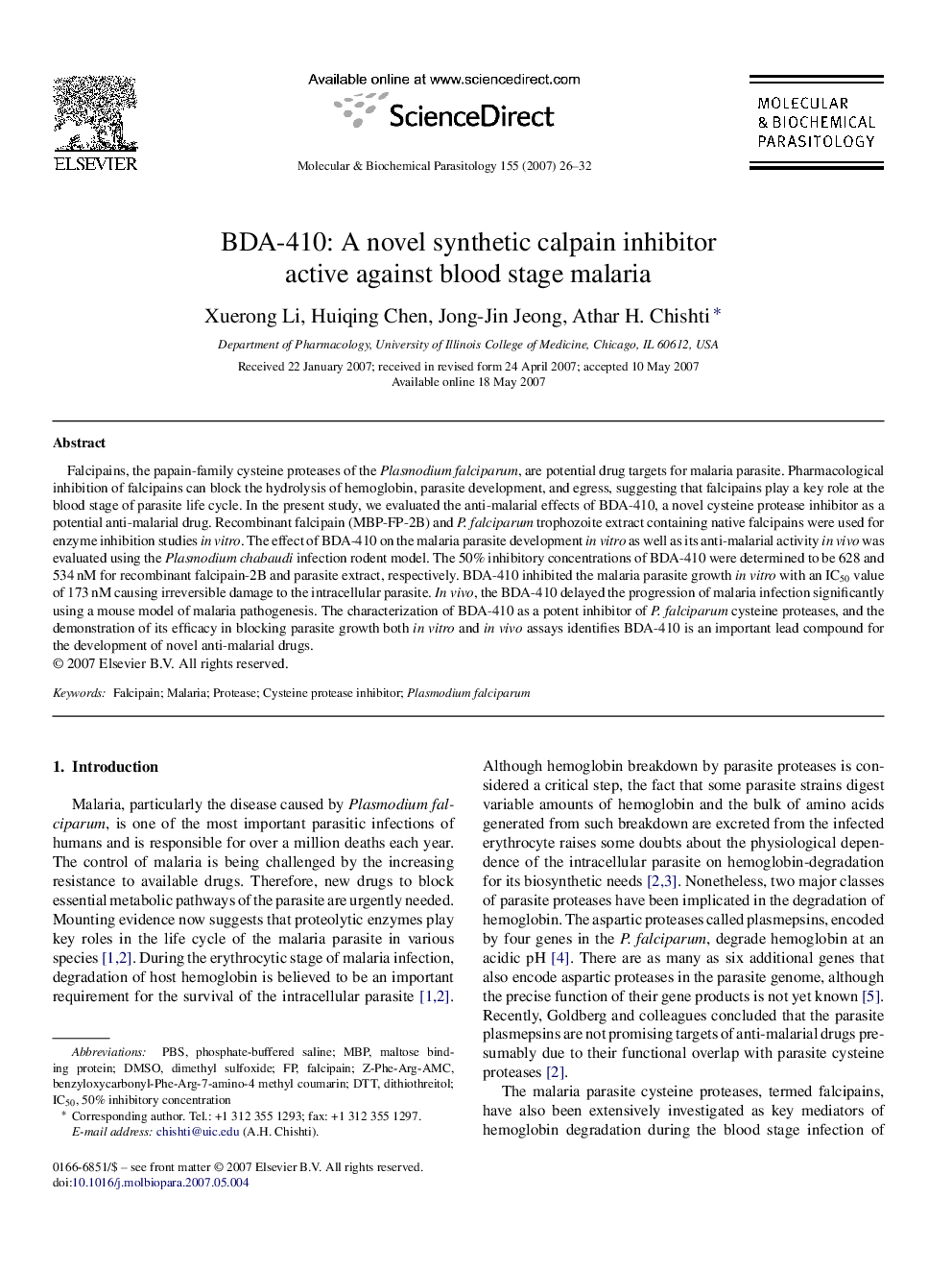| Article ID | Journal | Published Year | Pages | File Type |
|---|---|---|---|---|
| 2830281 | Molecular and Biochemical Parasitology | 2007 | 7 Pages |
Falcipains, the papain-family cysteine proteases of the Plasmodium falciparum, are potential drug targets for malaria parasite. Pharmacological inhibition of falcipains can block the hydrolysis of hemoglobin, parasite development, and egress, suggesting that falcipains play a key role at the blood stage of parasite life cycle. In the present study, we evaluated the anti-malarial effects of BDA-410, a novel cysteine protease inhibitor as a potential anti-malarial drug. Recombinant falcipain (MBP-FP-2B) and P. falciparum trophozoite extract containing native falcipains were used for enzyme inhibition studies in vitro. The effect of BDA-410 on the malaria parasite development in vitro as well as its anti-malarial activity in vivo was evaluated using the Plasmodium chabaudi infection rodent model. The 50% inhibitory concentrations of BDA-410 were determined to be 628 and 534 nM for recombinant falcipain-2B and parasite extract, respectively. BDA-410 inhibited the malaria parasite growth in vitro with an IC50 value of 173 nM causing irreversible damage to the intracellular parasite. In vivo, the BDA-410 delayed the progression of malaria infection significantly using a mouse model of malaria pathogenesis. The characterization of BDA-410 as a potent inhibitor of P. falciparum cysteine proteases, and the demonstration of its efficacy in blocking parasite growth both in vitro and in vivo assays identifies BDA-410 is an important lead compound for the development of novel anti-malarial drugs.
